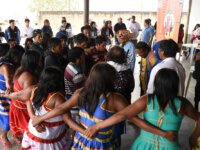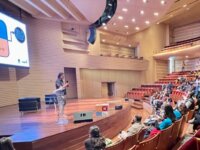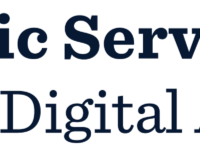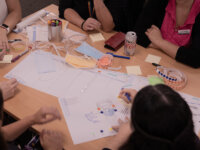When I began working as a judge in the town of Águas Formosas (in Minas Gerais, Brazil), I discovered that the region was inhabited by more than 2,000 Maxakali Indians, who lived in large villages and spoke another language. I researched their access to justice and realized that they suffered from many rights violations. With the support of the Court of Justice of Minas Gerais and the Regional Electoral Court, I created an innovation project to bring citizenship, democracy, and justice to the…
Innovation Tag: People Networks/Communities of Practice
Public innovation Labs have been at the forefront of the transformation of public innovation ecosystems in different countries and cities. However, they are knowingly sensitive to changes in public administrations and to political decisions. Our Spider strategy (Araña) seeks to strengthen and give sustainability over time to public innovation based on the creation of networks and ecosystems and the non-exclusive dependence on innovation units or Labs, thus diminishing the related aforesaid…
Governments need staff equipped with key digital capabilities alongside traditional skills of policy, economics and ethics. The majority of post-secondary programs producing future public servants lack training on digital era skills and competencies. To solve this problem, we lead a train-the-trainer model to share open educational materials, including a syllabus on digital era public administration skills. We are nurturing a global community of faculty wh teach these materials.
In 2020, the health department in Queensland Australia piloted a novel form of government-university partnership to multiply the department's capacity for frontline clinical innovation. Building on the significant success of our pilot year, this award winning program has evolved into a dynamic ecosystem of clinicians, consumers and academic experts with an enviable track-record of diverse service transformations. This model is now being emulated by many local health services across the State.
There are plenty of innovative initiatives that never manage to reach the public sector, generating inequalities in access and quality in the provision of solutions. GovtechLab Madrid is the first open innovation Lab located inside of the Community of Madrid. The focus of the Lab is on reducing the barriers and accompanying both the supply and demand sides in finding solutions and opportunities to implement them.
The Mayor of London is piloting how human centered design and systems thinking can fuse with a missions-orientated approach to make the city a better place to live, work and visit. Designing London's Recovery seeds a portfolio of radical innovations cutting across policy areas, embedding future resilience and redefining good growth by deconstructing silo working, fostering a design-led collaborative and inclusive policy ecosystem, and sparking creativity to create further systemic impacts.
The CXEC is a cohort program that brings together US Department of Agriculture (USDA) staff across America to learn about customer experience (CX) and develop new solutions to common CX issues faced by American farmers. In doing so, it creates a unique space for collaboration, knowledge-sharing, and the development of locally-informed solutions.
The EGTC GO represents an instrument to unlock cross-border potential for innovation, competitiveness, and sustainable growth. It promotes innovation in local governance through a supra-regional method to solve cross-border challenges - administrative and legal burdens – in order to provide concrete solutions for its territory and citizens. Flagship cooperation projects on Health, Culture and Social Innovation are key examples of the innovative added-value of the EGTC GO.
The Global Councils on SDGs is a unique interdisciplinary network of decision makers from governments, international organizations, academia, and the private sector, who came together to share innovative practices and discuss the creative implementation of the SDGs at the national and global level. Based at the World Government Summit, the Councils aimed to work on creating new partnerships between countries, organizations, and sustainable development advocates for the implementation of SDGs.
Case Study
KOPIA – Customized cross-border farming technologies to address poverty and rural challenges
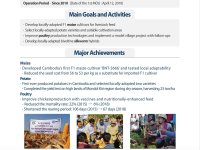
KOPIA (Korea Program for International Cooperation in Agricultural Technology) is an innovative development cooperation platform that facilitates agricultural partnerships among partners and donors, where agricultural technologies can be efficiently scaled up and effectively commercialized. KOPIA consists of three pillars: to develop locally-customized farming technologies; to carry out pilot projects to demonstrate practical effectiveness; and to involve other donors for scaling up.

